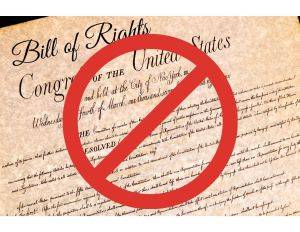Is Intoxication a Valid Defense Against Criminal Charges in Wisconsin?
The intoxicating effects of alcohol and controlled substances (prescription and illegal) have been demonstrated to lower a person’s inhibitions, alter behavior, and impair a person’s mental and physical abilities, including the ability to operate motor vehicles steadily and safely. Unfortunately, alcohol and substance use sometimes lead to situations where a person is arrested on criminal charges. For example, in State v. Christen, 2021 WI 39, the Wisconsin Supreme Court held that the Second Amendment does not protect an intoxicated person's right to possession of a firearm for self-defense, in a drunken altercation with roommates inside defendant’s residence).
If you have been arrested while under the influence of drugs or alcohol, you may wonder whether your state of intoxication could be a mitigating factor or perhaps even be raised as a defense that might help avoid a conviction. At first glance, it seems reasonable that the effects of a substance on a person’s mental state would impact on specific intent and possibly absolve you of personal responsibility for your actions. However, in Wisconsin, this is only true under limited circumstances, because the legislature and courts have determined that the intoxication defense should be greatly limited on public policy grounds. Thus, it is important that you work with an experienced and knowledgeable criminal defense attorney to determine whether such a defense may apply in your case.
Understanding the Wisconsin Intoxication Defense
Under Wisconsin law, whether or not intoxication is a valid defense depends on both the nature of the alleged crime and the circumstances leading to intoxication. For certain criminal offenses like drunk driving (operating while intoxicated (OWI)), the presence of or being under the influence of alcohol or with drugs present in one's system is a central component of the crime itself. The law on the intoxication defense in Wisconsin was arbitrarily and sharply limited by legislative changes made to Wis. Stat. §939.42. By enacting 2013 Wis. Act 307, the legislature completely eliminated the voluntary intoxication defense that has existed for over 150 years in this state. Wisconsin law now limits intoxication as a valid defense for a crime only if the person became intoxicated involuntarily.
Under the “old” law, voluntary intoxication was a defense if that intoxication negated the existence of the necessary state of mind. Act 307 states that an intoxicated or a drugged condition of the actor is a defense only if such condition is involuntarily produced. This legislative elimination of the defense of voluntary intoxication is inconsistent with prior case law and is unreasonable and constitutionally questionable, as it denies a person due process, equal protection, and the right to present a defense.
In order to escape criminal responsibility under § 939.42, a defendant must show (1) that the intoxicated condition was involuntarily produced, and (2) that the intoxication rendered the defendant incapable of distinguishing right from wrong. The effects of prescription medication can form the basis for an involuntary intoxication defense. State v. Gardner, 230 Wis. 2d 32, 40, 601 N.W.2d 670 (Ct. App. 1999).
Assertions of some evidence of intoxication alone does not necessarily create a valid defense. State v. Strege, 116 Wis. 2d 477, 486, 343 N.W.2d 100 (1984). You will also need to be able to demonstrate that one of the following is true:
- Your intoxication prevented you from understanding the difference between right and wrong. This can create a defense against a wide range of crimes, provided that you can show that your mental abilities were impaired to the point that your moral judgment was affected.
- Your intoxication made it impossible for you to be in the state of mind required for the crime for which you were charged. This often applies in cases involving crimes that require intent, such as battery, robbery, and burglary.
Contact a Milwaukee County Criminal Defense Attorney
At Gimbel, Reilly, Guerin & Brown, LLP, our experienced Milwaukee criminal defense and constitutional lawyers will sift through, consider, and evaluate defense strategies, consult with toxicologists and other forensic experts, and make appropriate constitutional and other challenges to the government's case that may help you avoid a conviction or prevent you from being convicted and sentenced for a more serious crime. If you are facing criminal charges, we will help you protect your rights. Contact us today for a consultation by calling 414-271-1440. Please listen to the episode of the Civic Revival podcast released on Wednesday, May 19 (start at minute marker 16:34) to hear Attorney Ray Dall'Osto discuss the Christen case, the Second Amendment, and related criminal law.
Sources:
Wis JI-Criminal 755A and 755B
Wis JI-Criminal 765 (withdrawn in 2015 in light of Act 307)
https://docs.legis.wisconsin.gov/statutes/statutes/939/iii/42
https://scholarship.law.marquette.edu/cgi/viewcontent.cgi?article=2407&context=mulr

 By
By 





